
Local leaders took an action!

Local leaders takes action towards waste management for the Black-necked Cranes
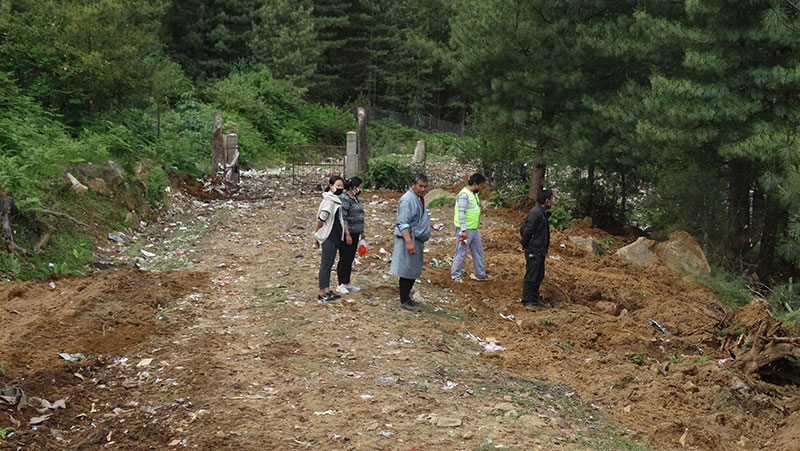
Wastes before a day-long cleaning
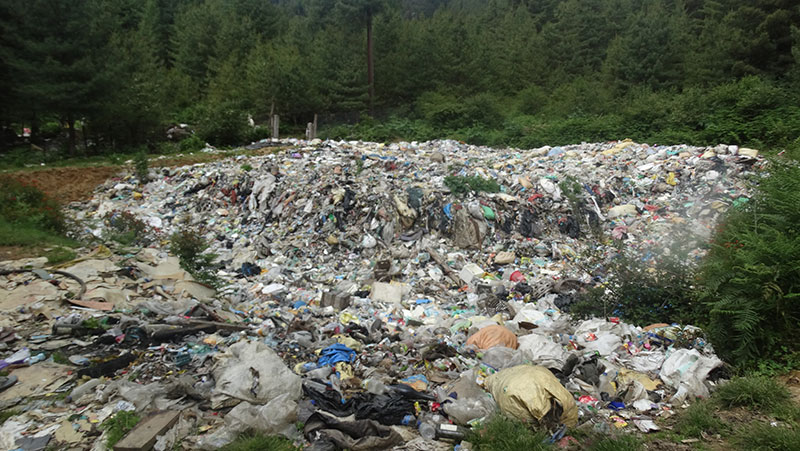
After the cleaning
Phobjikha valley, the largest high altitude wetland in Bhutan is the largest habitat for the endangered species: Black-necked Crane, and is one of the important ecosystem areas in the country. The vast wetland in the middle of the valley is highly sensitive to any human induced changes that may come with the socio-economic development activities and population growth.
While waste programs were started as early as 2003, littering and waste management have become a serious issue in the valley. Therefore on 30th June 2019, representatives from the local government offices, schools, monastic institutions, business community and staff from RSPN initiated a day long cleaning campaign at the landfill. The campaign aimed to educate the local leaders about waste management and was a testament to their commitment to tackle waste issues.
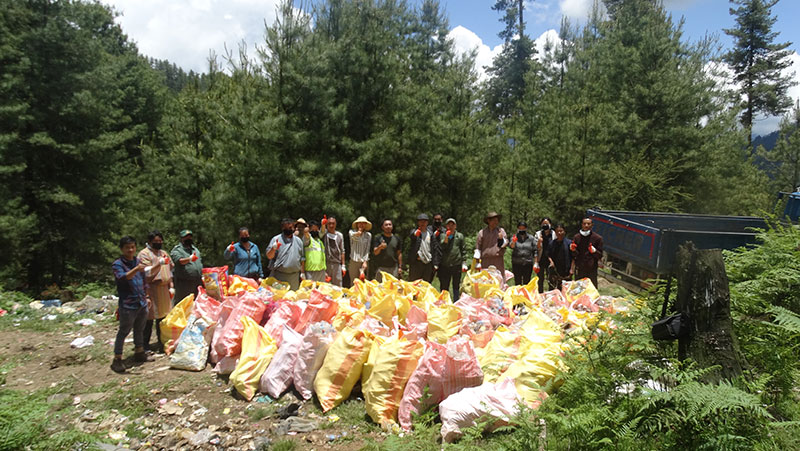
Collection of recyclable wastes
The wastes, mostly consisted of pet bottles, plastics, rubber boots, tins, diapers, old clothes and so on. Recyclable wastes were segregated at the landfill and a truck load of it was handed over to scrap dealer based in Bajo town at Wangdue.

Our Last Three Months
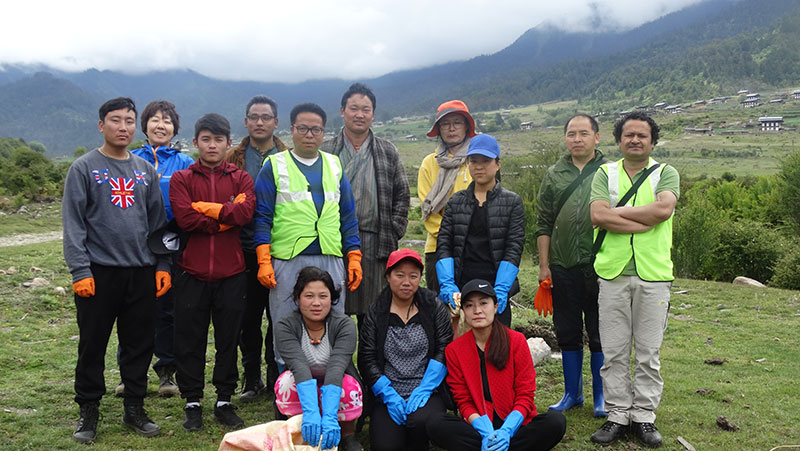
The cleaning campaign during the World Environmental Day
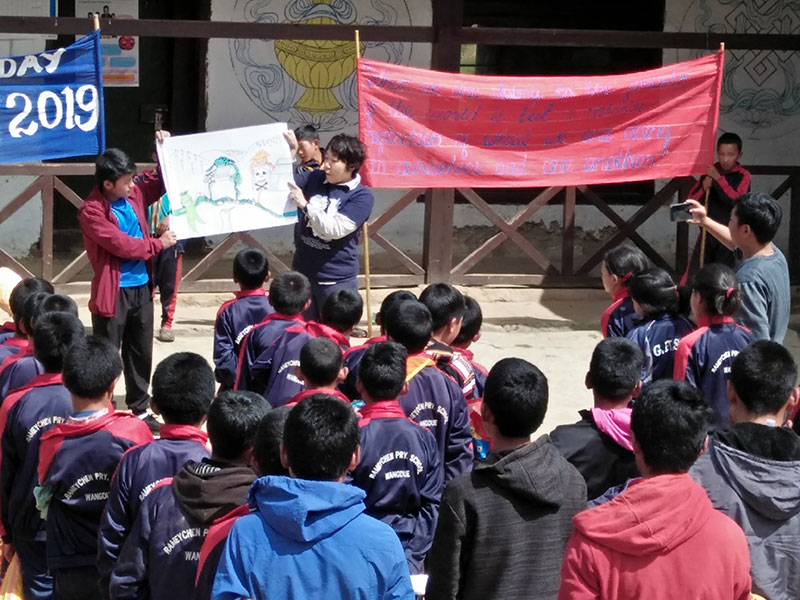
A staff from BirdLife explained the negative impacts of pollution
The feedbacks and comments received from the Publication Review Committee of RSPN on the video documentary, have been integrated. The final draft will be presented to CSLD and CMD chiefs for final comments. The final draft of a poster on adult Black-necked Crane showing its anatomy, and pictorial leaflets on the association of Black-necked Crane with the wetlands and the community has been completed and presented to the committee. A few feedback and comments have been received and are being integrated. T-shirt design has been endorsed by the committee, and preparing for a bid. We have already assessed the existing exhibits in the visitor centre and have finalised the content of information panels.
A staff from BirdLife visited the project site to monitor the ongoing project, and discuss the project plan and activities with the young staff. We also participated the World Environment Day events at target schools.
Final review of the “Environmental Education Guide Book” and “Follow that Stream” have been completed. The feedbacks and comments are being integrated. “Smart Living Tips” book has been reviewed and will be given for designing to ICT officer of RSPN.

Our Next Three Months
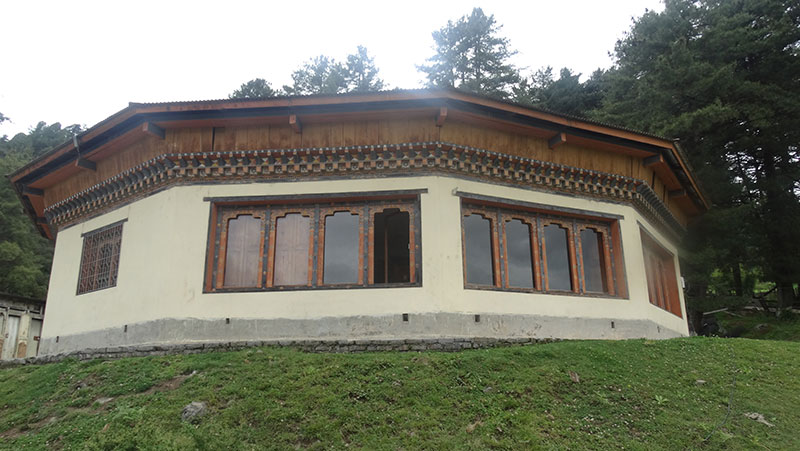
the Black-necked Crane visitor centre
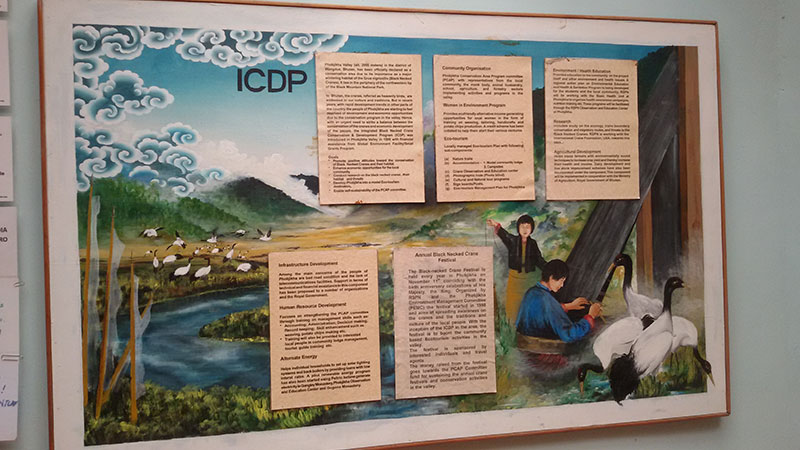
These panels will be updated soon
By mid of June 2019, the video documentary will be completed and will be presented to the mentors for endorsement by mid-June 2019. We will be able to print the leaflets and posters for BNC anatomy and association of BNC with wetland and communities, and the T-shirt with environmental messages by the end of July. Renewal of the exhibits for the visitor centre will be completed by the end of first week of August, 2019
By early August, the awareness raising programs for various stakeholders will be began in Phobjikha using the awareness raising materials that we are developing now. Also, stream activities (measuring water quality etc) with nature club students will be implemented in September.
The final draft of the three environmental education reference materials will be printed which will be used during the training of teachers. Training of teachers will be conducted after July 20, 2019. We were unable to conduct according to our initial plan, as there was an announcement that the all teachers needed to attend a workshop nation-wide. Therefore, we will conduct the training only after July, 20, 2019. After the completion of the final review of the environmental education reference materials, the Adm/HR section will send quotation to printing firms.
